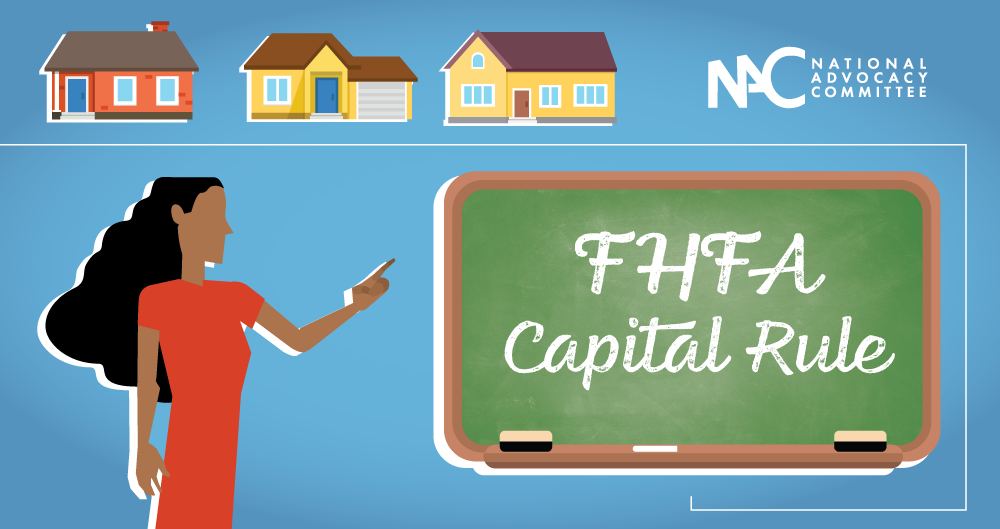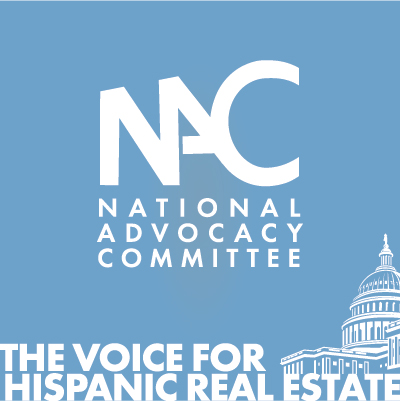NAHREP Urges Changes to GSE Capital Rule
Celebrating NAHREP familia, cultura, politics, and grassroots action
Qué onda mi gente?!
I cannot believe it is already September. It’s back to school time, or back to zoom time? Mad respect to all of the parents out there for balancing rock star careers while “staffing” your kids while they sit in front a zoom classroom cross eyed making faces at each other. Dogs barking, kids screaming, life happening: life, work, blurred lines all around. It’s called 2020 damas y caballeros, and this madness is feeling weirdly familiar now. Speaking of which, who can tell me their most embarrassing “zoom school” related story? I could really use the humor right now!
I also hope all of you have purchased your NAHREP Sales Mastery, Real Estate and Wealth Conference at L’ATTITUDE by now. If not, what are you waiting for?? It’s like your own “Zoom School” but with Deepak Chopra! Tell me you all don’t need some zen right about now??

NAHREP joins coalition urging changes to GSE Capital Rule
It’s time to talk good ‘ole regulations. Yes, those rules that govern our industry that sound boring when you first hear about them and then you’re faced with having to implement them and wished you had paid attention when it was being debated in the first place. This is exactly that kind of “regulation.” ”Entonces, a poner atención corazones!” This week NAHREP, along with a coalition of industry and consumer groups submitted our letter urging the FHFA to reconsider its Capital Rule. For those of you who might remember, we laid out our initial concerns with the regulation back in June here.
WHY THIS SHOULD MATTER TO YOU: The Capital Rule as it stands will make loans more expensive for low-to-moderate income borrowers and communities of color. More Latinos will be forced to use FHA as their only option when purchasing homes.
Did you know that today, 57.6 percent of Hispanics get conventional mortgages through Fannie Mae or Freddie Mac? Latino first time borrowers are often able to receive better financing terms through a conventional loan. This might not be the case if this rule is implemented as is.
WHAT WILL HAPPEN:
- The proposed rule unnecessarily increases costs and reduces mortgage credit availability with a disproportionate impact on low-to-moderate income families and families of color. This would make the wealth gap greater, which has already been made worse due to COVID-19.
- The rule would spread catastrophic risk among all loans, hiking fees enormously in times of crisis.
Here’s our summary with our key criticisms of the rule:
- The rule will make loans more expensive for low- to moderate-income families, particularly communities of color.This is our main concern. The capital requirements would ensure that instead the federal government absorbing the impacts of a financial crisis, such as the 2008 housing crisis or the COVID-19 pandemic, that these costs would be distributed more broadly. Ultimately, this would mean higher costs for consumers and less credit available overall.
- Experts predict that this move will at minimum result in an increase of 10 basis point increase for an average borrower and upwards of 50 basis points for borrowers with relatively higher LTVs or lower credit scores, such as many Latino borrowers.
- The GSEs are not banks and shouldn’t be required to hold the same amount of capital.The regulation essentially requires Fannie and Freddie to hold more equity capital. But, the GSE’s aren’t banks so why are we subjecting them to the same complex requirements that will reduce credit for our communities?
- Unlike banks that do a variety of different activities, such as taking deposits, credit cards, student loans, etc, the GSE’s focus on one thing: mortgages.
- The GSE’s also carry way less risk. For one, the GSEs sell off their risks to investors while banks hold that that risk.
- The GSE’s receive government support through a thing called Preferred Stock Purchase Agreements, meaning that the U.S. Treasury is committed to fund any shortfalls the GSE’s might have.
- A large part of the GSE’s mission is to serve communities not being served by the private market.
Update from the 2018 proposed rule that we’re happy about.
The 2020 proposed rule reduces penalties for lower-wealth borrowers by removing the extra fee for single borrower loans and for low balance loans (mortgages below $100,000). This will be a better outcome for single parent households, rural communities and depressed housing markets.
Next steps: We urge FHFA to provide a full analysis of the effect of its capital rule on the cost of credit in different segments of mortgages
Latinos are the future of the housing market. Accounting for over 50 percent of homeownership growth over the past decade and over 40 percent of household formations during that same time period. A failure to understand what a critical role Latinos will continue to play in our market, is a failure to prioritize our economy.
We have to remind the GSE’s that they have a 3-part charter, and this Rule is contrary to that charter:
- To provide access to credit for the entire country, with particular emphasis on low- to moderate-income families and underserved communities.
- The GSEs have a countercyclical mandate to provide liquidity through all market cycles.
- FHFA must promote the safety and soundness of the GSEs and the housing finance system.
Let me know if you have questions. This is a big deal for us!
Un abrazo.

About Noerena Limón
Noerena Limón is NAHREP’s Executive Vice President of Public Policy and Industry Relations. Noerena heads the organization’s policy and advocacy efforts on issues ranging from homeownership, housing inventory, credit access and immigration.
Prior to joining NAHREP, Noerena spent six years at the Consumer Financial Protection Bureau (CFPB) and served as a political appointee under President Obama in the White House Office of Political Affairs.



